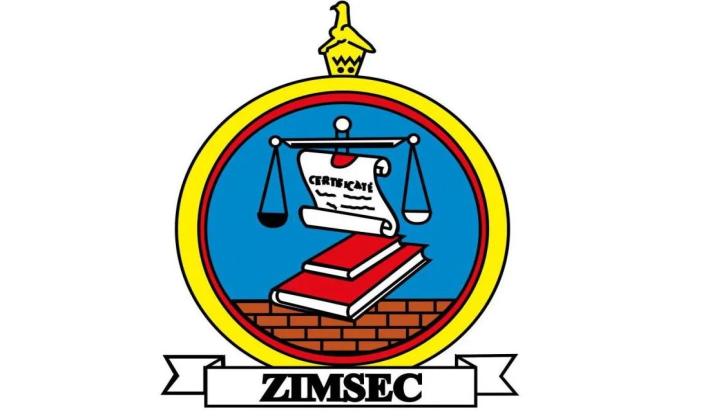Opinion / Columnist
Unfair Labor Practice: ZIMSEC's Unpaid Invigilation Policy
18 Oct 2024 at 20:10hrs |
0 Views

The Zimbabwe Schools Examination Council (ZIMSEC) has been criticized for its controversial policy of forcing teachers to invigilate public exams without compensation, while exam markers receive payment for their services. This disparity raises questions about fairness, labor rights, and the relationship between ZIMSEC and the Ministry of Primary and Secondary Education (MoPSE).
Background
ZIMSEC is responsible for administering national examinations in Zimbabwe, ensuring the integrity and standardization of the education system. Invigilation is a critical aspect of maintaining exam security and fairness. However, teachers are not compensated for their time and effort in performing this essential duty.
Key Issues
1. Unpaid Invigilation: Teachers are required to invigilate exams without payment, despite the significant time and effort involved.
2. Paid Marking: Exam markers receive payment for their services, highlighting a disparity in compensation for similar roles.
3. Lack of Contract: MoPSE and ZIMSEC are separate entities, yet teachers are expected to work for ZIMSEC without a written contract or clear terms.
4. Labor Rights: The policy raises concerns about fair labor practices, exploitation, and teacher welfare.
Concerns and Implications
1. Teacher Demotivation: Unpaid invigilation can demotivate teachers, affecting their morale and overall performance.
2. Exam Integrity: Insufficient compensation may compromise exam security, as invigilators may not be incentivized to maintain high standards.
3. Labor Law Violations: The policy may contravene Zimbabwean labor laws, potentially leading to legal repercussions.
4. Strained MoPSE-ZIMSEC Relations: The lack of clear contracts and compensation may strain relationships between the two entities.
Recommendations
1. Fair Compensation: ZIMSEC should provide fair compensation for invigilation services.
2. Clear Contracts: Establish written contracts outlining terms, conditions, and compensation for teachers.
3. Labor Law Compliance: Ensure policy alignment with Zimbabwean labor laws.
4. Transparent Communication: Foster open communication between ZIMSEC, MoPSE, and teachers.
Conclusion
The disparity between unpaid invigilation and paid marking highlights a pressing issue that requires attention. ZIMSEC and MoPSE must address these concerns to maintain teacher morale, ensure exam integrity, and uphold labor rights.
Call to Action
Teachers, educators, and stakeholders should:
1. Advocate for fair compensation and clear contracts.
2. Engage with ZIMSEC and MoPSE to address concerns.
3. Seek legal recourse if necessary.
By promoting fairness and transparency, Zimbabwe's education sector can uphold the rights and dignity of its teachers.
Background
ZIMSEC is responsible for administering national examinations in Zimbabwe, ensuring the integrity and standardization of the education system. Invigilation is a critical aspect of maintaining exam security and fairness. However, teachers are not compensated for their time and effort in performing this essential duty.
Key Issues
1. Unpaid Invigilation: Teachers are required to invigilate exams without payment, despite the significant time and effort involved.
2. Paid Marking: Exam markers receive payment for their services, highlighting a disparity in compensation for similar roles.
3. Lack of Contract: MoPSE and ZIMSEC are separate entities, yet teachers are expected to work for ZIMSEC without a written contract or clear terms.
4. Labor Rights: The policy raises concerns about fair labor practices, exploitation, and teacher welfare.
Concerns and Implications
1. Teacher Demotivation: Unpaid invigilation can demotivate teachers, affecting their morale and overall performance.
2. Exam Integrity: Insufficient compensation may compromise exam security, as invigilators may not be incentivized to maintain high standards.
3. Labor Law Violations: The policy may contravene Zimbabwean labor laws, potentially leading to legal repercussions.
4. Strained MoPSE-ZIMSEC Relations: The lack of clear contracts and compensation may strain relationships between the two entities.
Recommendations
1. Fair Compensation: ZIMSEC should provide fair compensation for invigilation services.
2. Clear Contracts: Establish written contracts outlining terms, conditions, and compensation for teachers.
3. Labor Law Compliance: Ensure policy alignment with Zimbabwean labor laws.
4. Transparent Communication: Foster open communication between ZIMSEC, MoPSE, and teachers.
Conclusion
The disparity between unpaid invigilation and paid marking highlights a pressing issue that requires attention. ZIMSEC and MoPSE must address these concerns to maintain teacher morale, ensure exam integrity, and uphold labor rights.
Call to Action
Teachers, educators, and stakeholders should:
1. Advocate for fair compensation and clear contracts.
2. Engage with ZIMSEC and MoPSE to address concerns.
3. Seek legal recourse if necessary.
By promoting fairness and transparency, Zimbabwe's education sector can uphold the rights and dignity of its teachers.
Source - Nkomah Isaac
All articles and letters published on Bulawayo24 have been independently written by members of Bulawayo24's community. The views of users published on Bulawayo24 are therefore their own and do not necessarily represent the views of Bulawayo24. Bulawayo24 editors also reserve the right to edit or delete any and all comments received.
Join the discussion
Loading comments…

































.jpg)